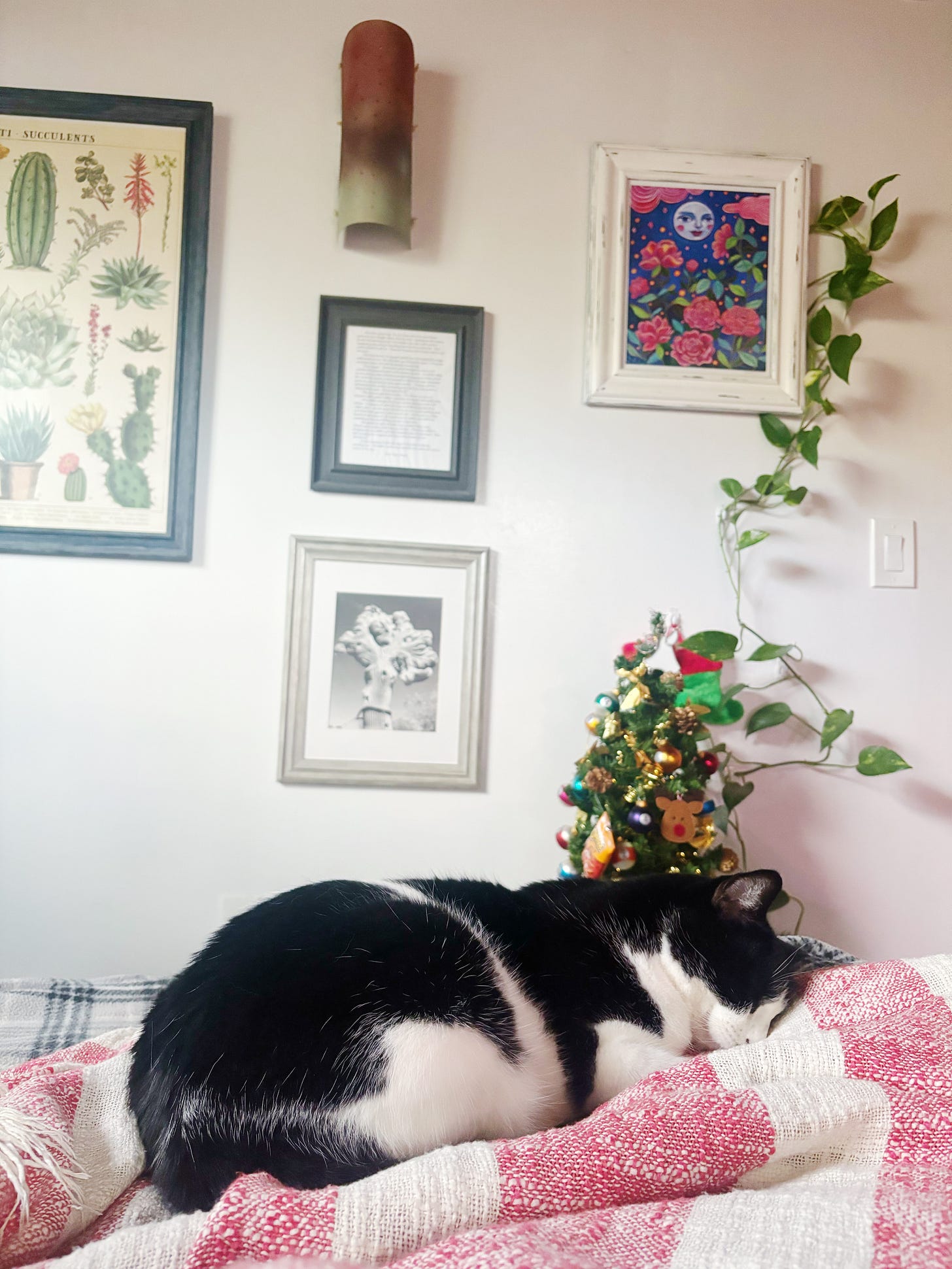Holidays can hold electric energies of cheer and anticipation or elicit more tender, grounded feelings inspired by giving and receiving. They can be warm or idyllic . . . neighborhoods sparkling with string lights, long tables pouring over with comfort food, snow falling silently and sending the world to sleep. Holidays can be bursting with blessings or reminders of how abundant one is financially or spiritually, spent surrounded by loads of beloved family and friends gathering together for the sake of love and Joy. They can be a time of carrying on long-held traditions or cherished generational rituals. They can be happy and magical.
Holidays can also hold tremendous pressure to show up for more events than one’s nervous system can handle. Or rife with temptations we work hard year-round to avoid. They can be a minefield of emotional triggers—lack of finances, friends or family. The entire holiday construct (whether religious or capitalist) may not jive with our sensitive, introverted preferences to stay home, do less, buy less and avoid drama at all costs. For whatever reason, we find ourselves overwhelmed, depressed or stressed in ways that seem to be in complete contradiction with the holiday spirit.
Holidays may be all of the above and more.
Can we explore what these cultural staples mean to us, or what we’d like them to?
Can we not only identify our preferences and open the doors to more aligned holiday experiences but also give ourselves permission to infuse new ways of engaging that fill us up or simply help us feel better?













